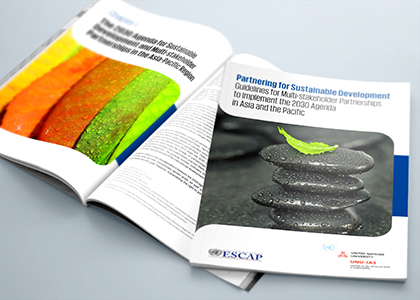This work also highlights some of the challenges and the opportunities for multi-stakeholder partnerships and identifies elements that can help ensure successful partnerships.
The interdependence of the Sustainable Development Goals and the universality and indivisibility of the 2030 Agenda generate complexities in terms of institution-building and policymaking, but they also create opportunities for innovation and provide space for new collaboration. It is hoped that these guidelines will help Governments and other stakeholders in the region foster the necessary alliances to respond to these complexities.

